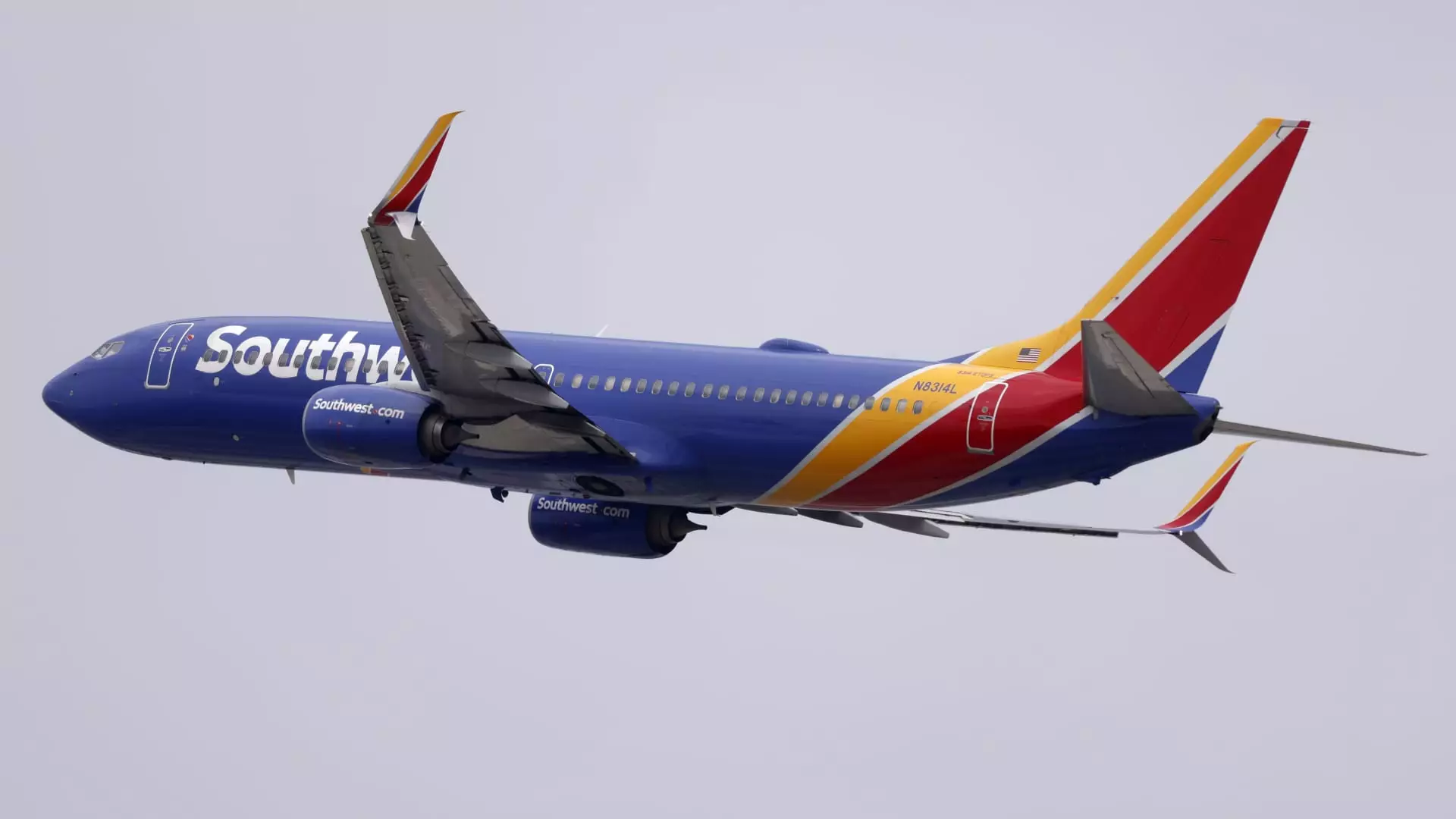In a significant move reflecting heightened consumer protection measures, the Department of Transportation (DOT) has filed a lawsuit against Southwest Airlines due to persistent delays that have plagued certain flights. This lawsuit stems from the carrier’s failure to address chronic delays, which were reported for flights operated between Chicago Midway International Airport and Oakland, CA, as well as flights from Baltimore to Cleveland. The DOT’s decision underscores a broader trend under the Biden administration—one that emphasizes accountability within the airline industry, especially when it comes to maintaining schedules and ensuring passenger satisfaction.
Chronically Delayed Flights: A Pattern of Inaction
According to the DOT, the aforementioned routes experienced nearly 200 late arrivals over a span from April to August 2022, marking each flight as chronically delayed for a duration of five consecutive months. Such chronic delays are defined by the DOT’s criteria: if a flight operates regularly, specifically at least ten times a month, and is late by over 30 minutes on more than half of those occasions, it falls under this designation. The seriousness of the situation is further amplified by the revelation that Southwest Airlines accounted for over 90% of the disruptions during this period. The DOT claims that the airline’s reluctance to modify its schedules reflects a concerning trend of negligence towards its customers.
Southwest’s Defense: A Longstanding Track Record
In the wake of the lawsuit, Southwest Airlines has expressed disappointment, arguing that the DOT’s assertions relating to flights that happened over two years ago are unfounded. The airline points to its extensive operational history, claiming that since the establishment of the DOT’s chronically delayed flight policy in 2009, it has successfully managed over 20 million flights without incurring any violations. This claim is presented as evidence of the airline’s overall reliability, challenging the notion that the current situation reflects a pervasive issue with scheduling.
The ramifications of chronic flight delays are significant for consumers. Travelers facing recurrent delays endure not only frustration but also potential financial losses, disrupted plans, and general anxiety related to travel. With the DOE’s increasing regulatory stance, this lawsuit represents a pivotal moment where consumer rights are reinforced. Such regulatory actions compel airlines to be held accountable for their operational shortcomings, pushing them towards better scheduling practices and more transparent communication with customers.
Penalty Against Frontier Airlines
Alongside the legal action against Southwest, the DOT has also imposed a $650,000 fine on Frontier Airlines for similar infractions relating to tardy flights. Interestingly, the DOT has chosen to suspend half of this penalty—$325,000—contingent on the airline’s ability to rectify its operational practices and avoid further chronic delays over the next three years. This strategy hints at an incentive-based approach where airlines are encouraged to improve efficiency through regulatory measures.
As the airline industry evolves, the DOT’s actions signal a potentially transformative era in aviation regulations. The legal actions against these carriers suggest a paradigm shift towards transparency and accountability. By upholding standards and imposing penalties, the DOT aims to create a more reliable travel environment for consumers, ensuring that airlines prioritize punctuality and customer service in their operations. Ultimately, the outcome of these actions will be closely observed and may set crucial precedents for how airlines manage their schedules and treat their passengers moving forward.


Leave a Reply